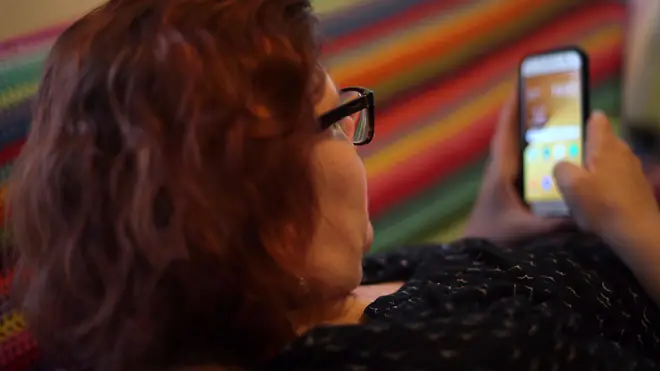
Paul Brand 10am - 12pm
22 January 2021, 15:33 | Updated: 22 January 2021, 21:50

If you have ever had a shock with a mobile phone bill you may have discovered that the reason it was so high was because of additional charges being added to the bill by third parties. This is what is known as ‘phone paid services’, a system where goods or services are charged to a phone bill.
Examples include music streaming subscriptions, games, donations to charity, voting on TV talent shows and dating websites. Rather than sending money via your bank or a credit card, your mobile phone provider acts like a bank, facilitating the payment via your mobile phone bill,. These can be recurring payments if it’s a subscription service.
Listeners stories
Many of my listeners on The LBC Consumer Hour have reached out to me for help in relation to phone paid services. For example:
Jean in Hackney found a charge for £28.99 added to her mobile phone bill. She had no idea what this was for. All she could find out was that it was something to do with online gaming.
Paul in Hemel Hempstead discovered that had been charged £12.99 per month for the past thirteen months, apparently for an online subscription. Knew nothing about this and didn’t know where to turn to next.
Abigail Osman from Basingstoke was charged £10.95 via her phone bill for entering an online competition. She accepted that she entered the competition but says she had no idea she had to pay any money.
The main problem these listeners faced, which is the same issue all consumers face in these circumstances, is a lack of information and understanding on the steps to take when faced with third party charges on your mobile phone bill that you either know nothing about, can’t remember making or dispute.
This is therefore an industry where the consumer desperately needs to be empowered with information, as to how they investigate and solve these issues. I am delighted to say that this week marks a turning point in this regard with the launch of a new website and service called www.phonecharges.org.

Katherine Hart explains Covid scams for Dean Dunham
How does Phonecharges.org help?
PhoneCharges.org will provide users with links to the relevant pages of their mobile networks’ website or to the Regulators (Phone-paid Services Authority) Number Checker so that they can find out quickly where any charges have come from. Additionally, it will provide easy-to understand information about how phone-paid services work, why users may have charges on their bill and when a refund may be due.
Who’s behind the new site?
The website has been funded by the Association for Interactive Media and Micropayments (AIMM), the trade body for the industry, and its membership.
Joanna Cox, General Manager of AIMM joined me on the LBC Consumer Hour to talk about this exciting new site for consumers.
She explained “More often than not, queries about phonepaid services are due to a lack of post-purchase information and consumers end up complaining to the regulator who are unable to resolve specific cases.
"PhoneCharges.org is there to help consumers get the information they need and solve their queries as quickly as possible.”

Online shopping may make consumers think twice about returning to physical retailers
I have an unknown charge on my phone bill – what should I do?
Follow these steps:
Step 1 – Go to phonecharges.org and click ‘Check a charge’. You will be asked to select your mobile phone operator and from there will directed through a short journey ending up with details of the third party that is responsible for the charge on your bill.
Step 2 – Armed with details of the service provider that has charged you, consider carefully if it is a service you have agreed to pay for.
Important note:
i) Service providers must make it very clear that you are opting for a service that is chargeable as a phone paid service. The Phone-Paid Services Authority regulations and Consumer Rights Act also provides that key terms, such as costs, must be made prominent.
ii) Often, when a consumer complains they did not consent to a charge, it transpires that they did, perhaps on impulse, by clicking to purchase a service or content online or by texting in to a participate in a TV, radio or charity campaign. The service provider then sends a confirmation usually by text but sometimes by email in relation to the charge, but these are often ignored by consumers, or end up in your spam box. If you’ve signed up to a subscription service, you will receive a notification every time a charge is made, so do take time to read them. If you receive such a message and do not consent, simply respond with the words ‘STOP’, following which the charges should stop.
Step 3 – If you still believe that i) you know nothing about the service or ii) you were not informed that it would be chargeable, contact the service provider. It will then have to show that you were fully aware of the services and associated charges and that you consented.
Step 4 – If you reach deadlock with the service provider without a resolution, ask if it subscribes to CommsADR or any other alternative dispute resolution (ADR) scheme. If it does, lodge a complaint with the ADR scheme.